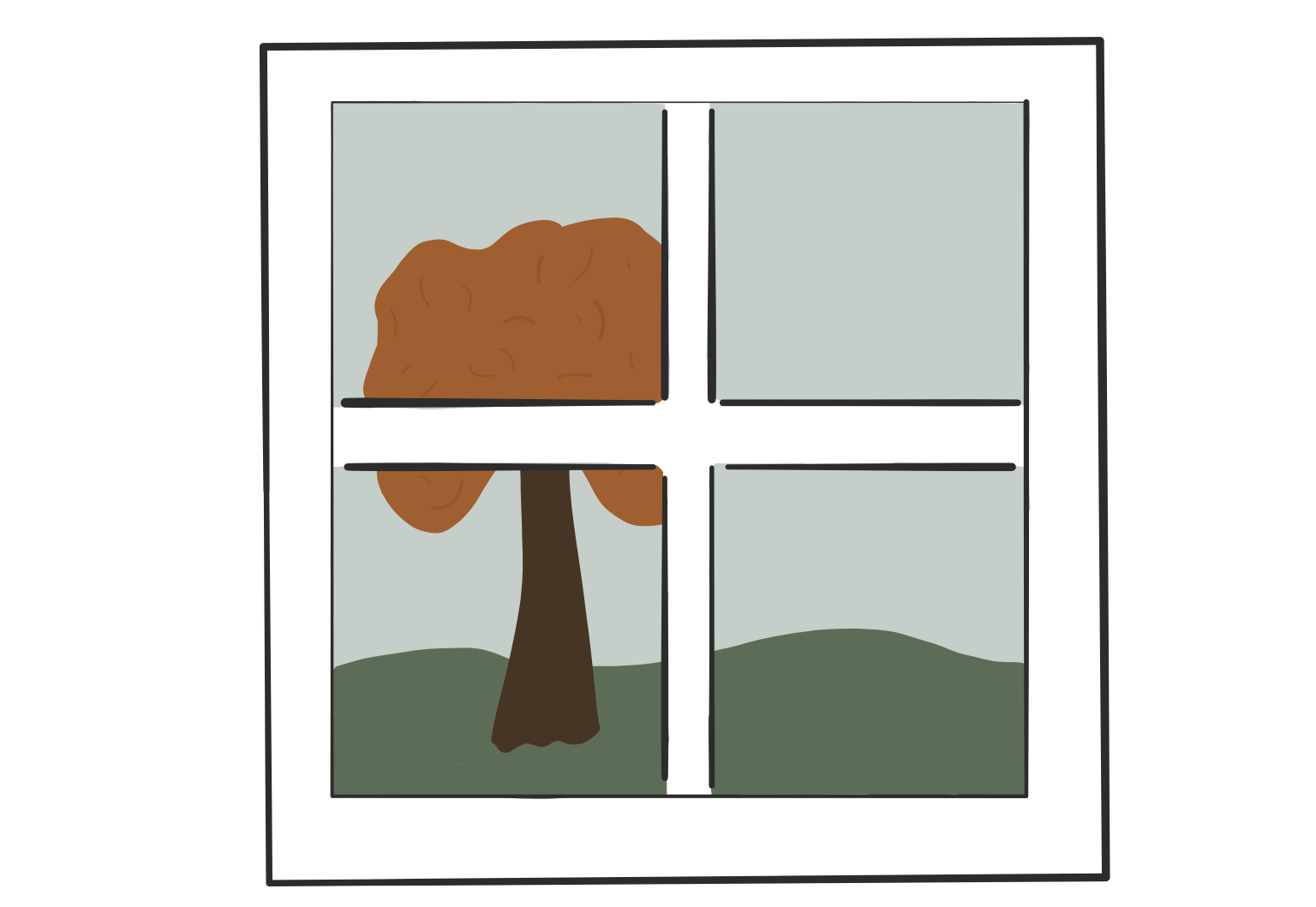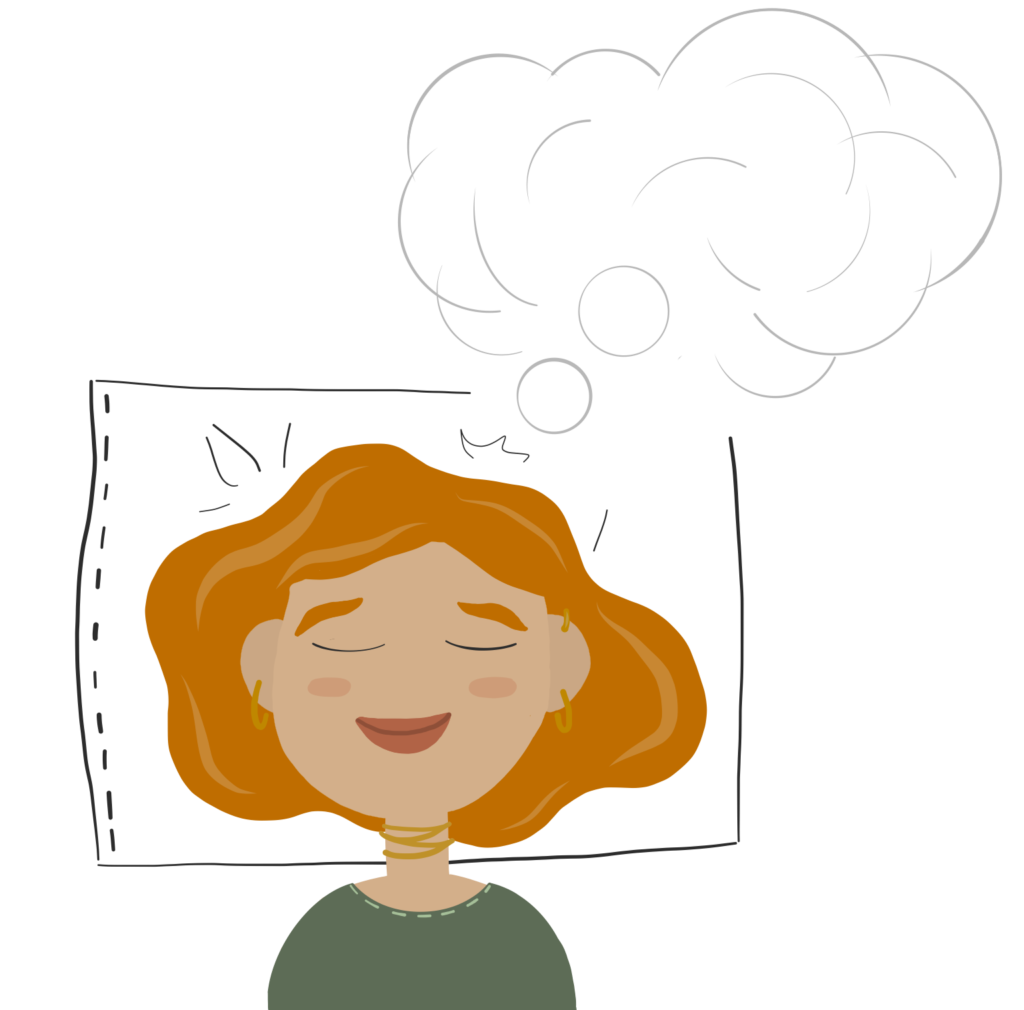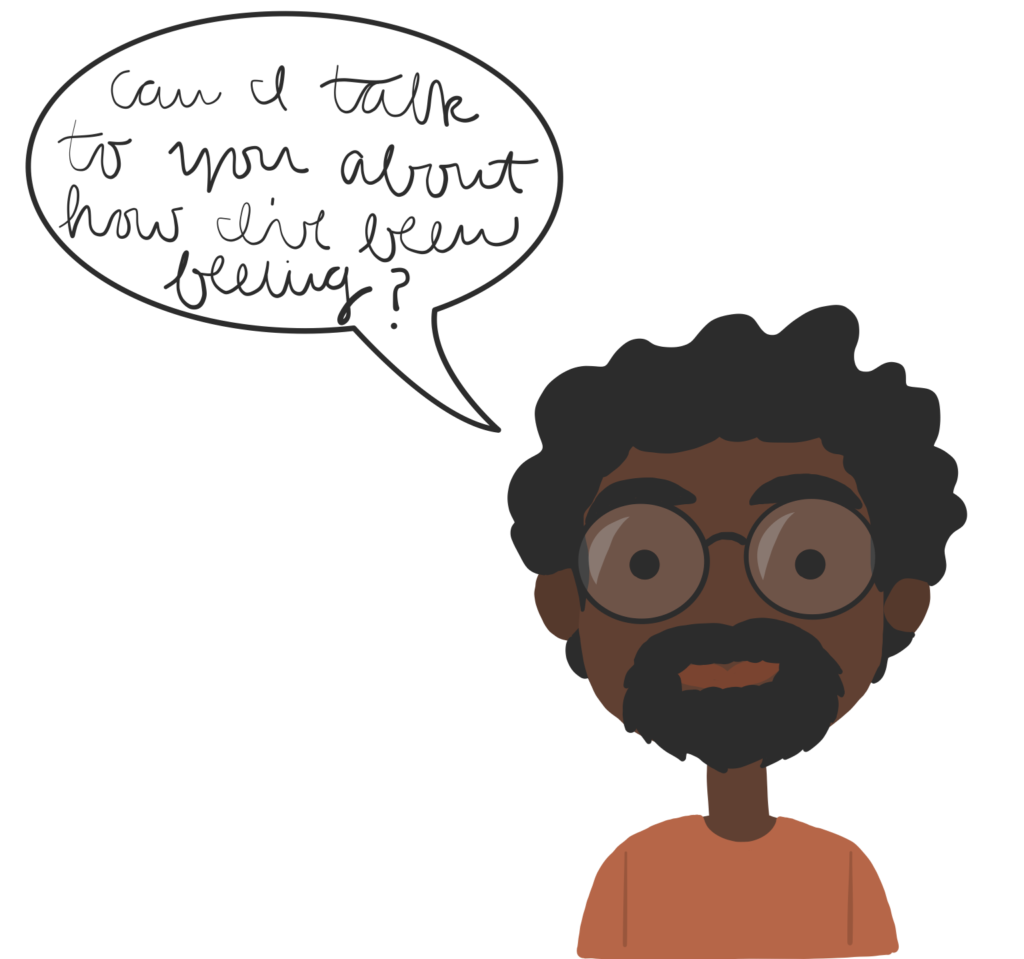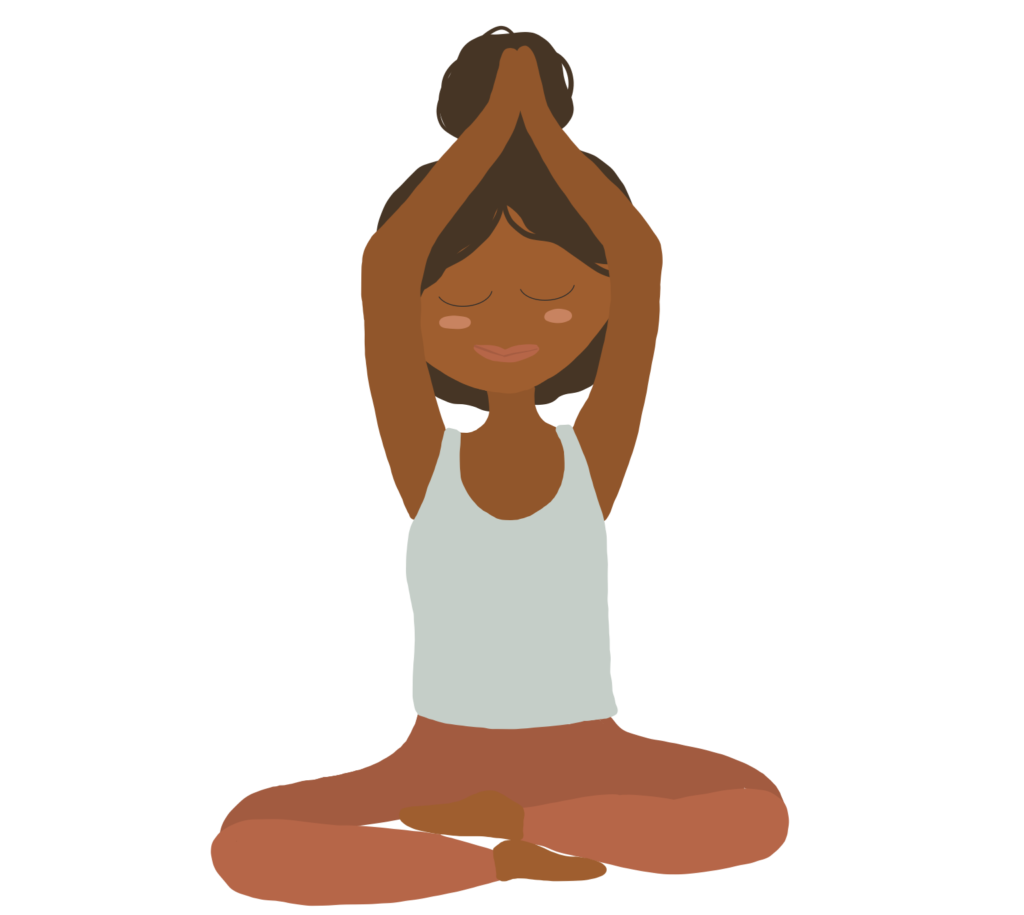Written by Kaitlyn Clink and Trong Mai
Illustrations by Claire Teng

It is no secret that 2020 will go down in history as a year of change, struggle, and overcoming what seems like endless obstacles. Coronavirus took the world by surprise and showed its resilience, leaving countless issues in its wake. One specific issue is the isolation that people all over the world have dealt with. The effect this has had on people’s mental health is intense. Although we have seen 2021 as a light at the end of th tunnel, many are still coping with what they went through in the previous year. Here are some tips and advice on how to minimize anxiety, overcome feelings of loneliness and overall, just keep your mental health in check after braving 2020’s storm. It is important to keep in mind that mental health is not something that should be swept under the carpet. Recognizing mental exhaustion and seeking help shows strength and is one of the best things you can do for yourself.
- Take time to go outside, even for just a little bit
Brandon Nottingham, freshman at Baylor University, shared how he tackles schoolwork and still gets fresh air during the day. “Every time I did a chapter I went out and walked around. Just going around and appreciating the campus outside really helped lower my stress,” he said. “I try to go outside as much as I can because we are so used to being isolated indoors, especially with Zoom classes.”
According to an article published by Harvard Medical School, the brain activity of individuals who went on nature walks had lower activity in the prefrontal cortex, which is the area of the brain that focuses on negative emotions. The article states, “Research in a growing scientific field called ecotherapy has shown a strong connection between time spent in nature and reduced stress, anxiety and depression.” Even spending 20 or 30 minutes outside can improve one’s general health. When going outside isn’t an option, researchers suggest listening to nature sounds as an alternative. An article by Scientific Reports, found that listening to nature sounds or even looking at pictures of nature settings can replicate similar effects on the brain to actually going outside.

2. Prioritize sleep when possible
According to SCLHealth, getting a good night’s sleep can boost one’s mood, increase productivity, improve memory and reduce stress. The benefits are endless. Students don’t always ensure they get their full eight hours, but sometimes sleep is what’s more important for overall wellbeing. In an article written by Eric Suni of the Sleep Foundation, due to the brain’s close association with sleep, evidence strongly suggests that more sleep can have a beneficial impact on mental health.
During sleep, brain activity fluctuates in the different sleep stages. According to the National Institute of Neurological Disorders and Stroke, sleep alternates between stages of non-rapid eye movement sleep and rapid eye movement sleep. There are three stages of non-REM sleep and the body cycles through these stages as well as REM sleep multiple times a night.
This is important because different parts of the brain become more active during various stages.
For example, the thalamus, formerly believed to play a passive, supporting role in the brain is actually proven to play a role in updating and maintaining mental representations in the mind, as well as a role in cognitive memory.
During most stages of sleep the thalamus is inactive, but during REM sleep it is responsible for the sensations we feel in our dreams. Shifting the focus back to mental health, Suni writes that sufficient sleep helps process emotions. Mental health conditions like depression and anxiety often show symptoms of insomnia. Understand that when dealing with insomnia, seeking professional help is encouraged and protecting your sleep supports a healthy brain and a sound mind.

3. Stay connected with friends and family in any way possible
“I started writing letters and I actually loved it. I love writing letters now!” Nottingham said when explaining the creative ways he has stayed in touch with people. Even when you feel alone, a phone call, text message, video chat, or written letter can change your perspective. Humans are a social species and communicating with your loved ones is a great way to stimulate your brain. Mental Health America states that even something as simple as a 10-minute conversation can reduce levels of cortisol, a chemical in the brain associated with stress.
MedicalNewsToday reports that people who exercised in groups rather than on their own had decreased stress levels and a better mental state at the end of a 12-week fitness program. Psychologist Susan Pinker found that social interaction releases a chemical in the brain called dopamine. Dopamine is a chemical messenger in the brain and is involved with attention, motivation and memory. In large quantities it gives the feeling of pleasure and satisfaction as part of the brain’s reward system. According to MedicalNewsToday, studies have found that people who have close friendships during their formative teenage years have lower rates of depression and anxiety later in life.

4. Confide in someone about the things you’re going through
Mental Health America shares that opening up about your struggles, sadness, fear and loneliness with a trusted confidant is important for both accountability and also for healing. It can put another perspective into the situation. It is hard to get better when trying to do something alone. The first step is recognizing that you are struggling.
Often, we are unaware of the severity of our issues, especially under mental distress. Acess your current mental state by reflecting on your energy level when you eat, talk to friends and other daily activities. It is important to note whether you feel drained more easily or if there is a constant feeling of sluggishness. Explore these topics deeper by comparing your answers to how you would have answered a month ago, and then a year ago. Change is not bad, but when you’re having a hard time functioning and feeling less satisfied with life, it is time to reassess your current habits and situation.
Once you recognize the situation and decide to work towards change, reaching out to loved ones is a huge step in progress. Having another person to help sort through emotions and support you mentally can ease the weight of heavy thoughts. The healing process is different for everyone, but having your loved ones know your situation will prevent any misunderstandings that could happen on your journey back to mental fortitude. According to the American Psychological Association, social isolation is a breeding ground for, not only mental health issues, but cognitive and physical health issues as well.

5. Count your blessings and track your gratitude
The entire world has felt the effects of the pandemic. Though it is a shared experience, everyone experiences it differently. Be thankful for the food you can eat every day, the bed that you have, the education you can get, the people that you know and the memories you have made. This does not eradicate anxiousness or sadness, but it can help put things in perspective. Moving forward, it is important to take each day as a gift. When facing mental instability, it is common to only be able to see the glass as half empty. Keeping track of the good things in life will balance the negative, perhaps not right away, but you will slowly build a habit of noticing good things in order to combat the bad.
Even so, if it were that simple there would be no need for therapists or psychiatrists. When all else fails and there are seems to be nothing to be thankful for, look in the mirror and thank yourself for sticking through another day. Start thanking yourself for the small things you do for yourself, like eating, brushing your teeth or even waking up in the morning.

6. Physical activity helps your brain and your heart
Stretching, yoga, body weight exercises, running and playing sports can help your mental health in amazing ways. An article from the National Library of Medicine elaborates on the benefits of physical activity, including better cognitive function, decreased tiredness, reduction of anxiety and depression, and improvement in self-esteem. Mental health ties closely to physical health and working on one can mean working on both.
The American Psychological Association found that exercise not only enhances short term mood but can help in alleviating depression. “Depression is often harder to treat and more likely to recur,” Mary de Groot, a psychologist in the Department of Medicine at Indiana University, said. De Groot also found that depression and diabetes were susceptible to one another. This means that people with depression are more likely to develop diabetes than neurotypical person and vice versa. Increasing studies are finding that exercise can treat both conditions. Even something as small as taking a walk outside for 30 minutes a day is a significant enough change to improve your mental and physical state in the long run.
“Our mental health is the definition of our humanity. Mental health is our social, emotional and psychological well-being. Without it we are just a mess of tissues, organs, cells and… other biological factors, but our mental health ties it all together. It’s just what makes us human,” Nottingham said. Taking care of your mental health is an important part of your overall
well-being and will help you work through rough patches and prepare your for any hurdle life throws at you.


